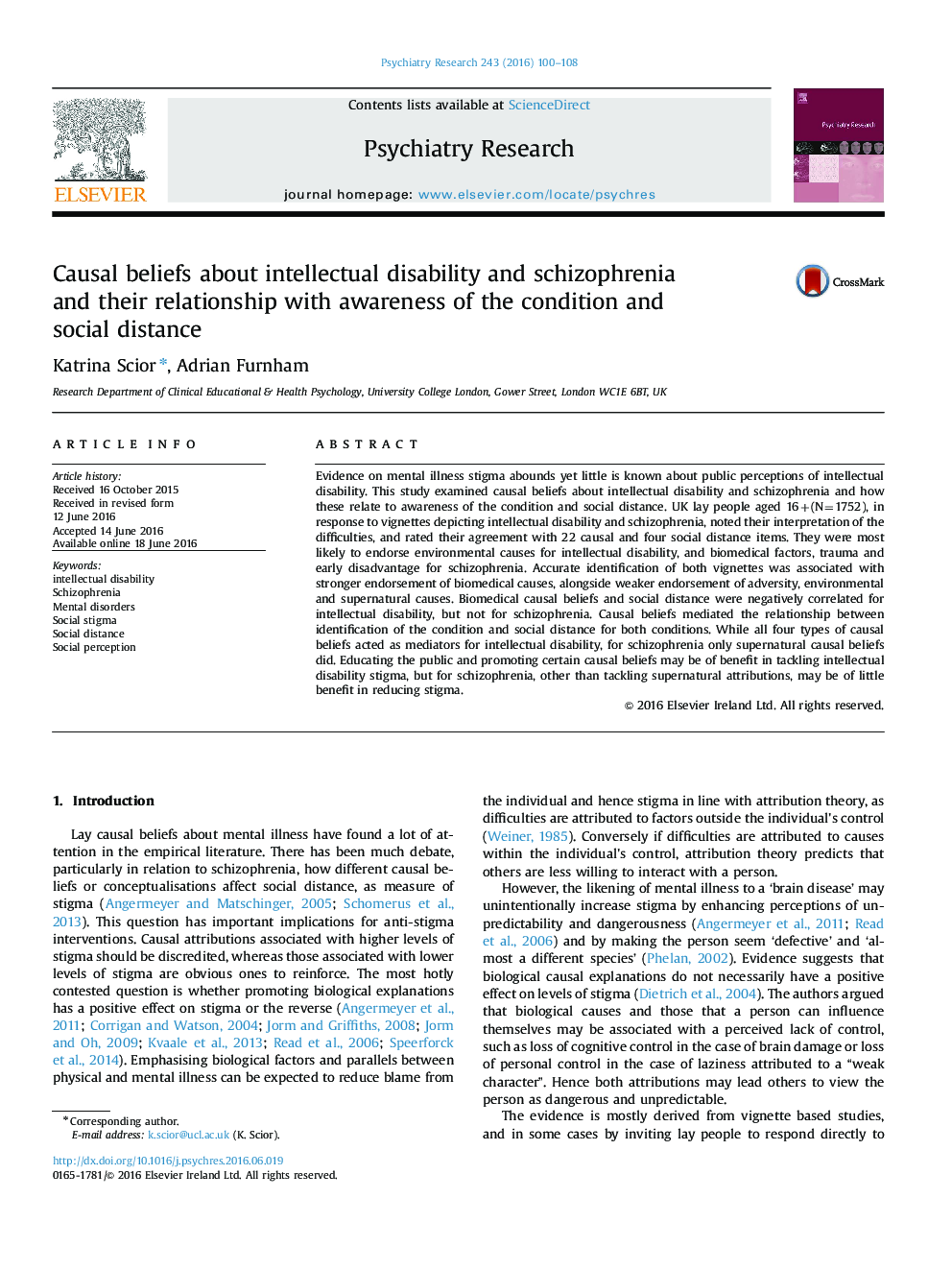| Article ID | Journal | Published Year | Pages | File Type |
|---|---|---|---|---|
| 6812685 | Psychiatry Research | 2016 | 9 Pages |
Abstract
Evidence on mental illness stigma abounds yet little is known about public perceptions of intellectual disability. This study examined causal beliefs about intellectual disability and schizophrenia and how these relate to awareness of the condition and social distance. UK lay people aged 16+(N=1752), in response to vignettes depicting intellectual disability and schizophrenia, noted their interpretation of the difficulties, and rated their agreement with 22 causal and four social distance items. They were most likely to endorse environmental causes for intellectual disability, and biomedical factors, trauma and early disadvantage for schizophrenia. Accurate identification of both vignettes was associated with stronger endorsement of biomedical causes, alongside weaker endorsement of adversity, environmental and supernatural causes. Biomedical causal beliefs and social distance were negatively correlated for intellectual disability, but not for schizophrenia. Causal beliefs mediated the relationship between identification of the condition and social distance for both conditions. While all four types of causal beliefs acted as mediators for intellectual disability, for schizophrenia only supernatural causal beliefs did. Educating the public and promoting certain causal beliefs may be of benefit in tackling intellectual disability stigma, but for schizophrenia, other than tackling supernatural attributions, may be of little benefit in reducing stigma.
Keywords
Related Topics
Life Sciences
Neuroscience
Biological Psychiatry
Authors
Katrina Scior, Adrian Furnham,
